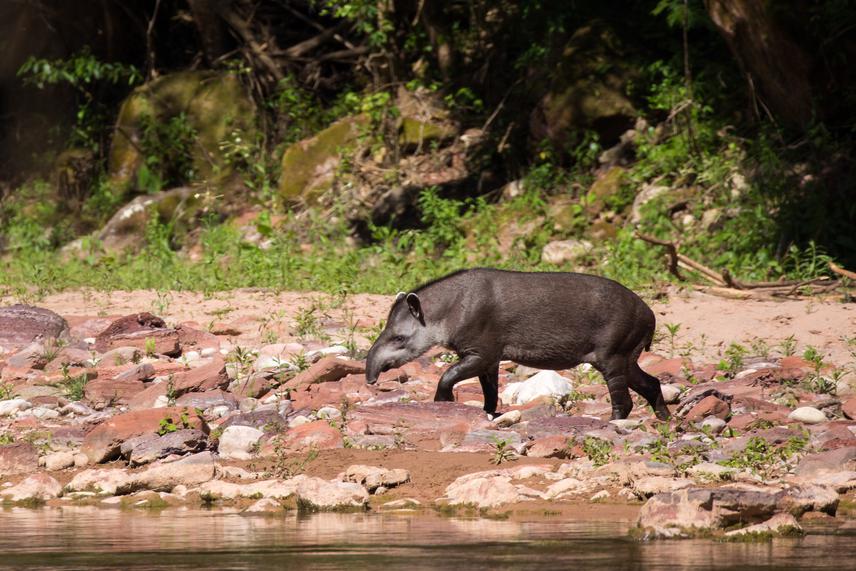Alejandro Alberto Schaaf
Other projects
5 Aug 2015
Effect of Conventional Logging on Cavity-Nesting Birds in Northwestern Argentina - Implications for Sustainable Forest Management
19 Jan 2017
The Impact of Logging on Bird Communities: Recommendations for Sustainable Forest Management in Northwestern Argentina
27 Feb 2020
Conversion of the North-Western Argentina Forest into Exotic Eucalyptus Tree Plantations: Effects on Bird Communities
Land-use change is one of the most important threats to biodiversity. In the past few years, there has been an expansion of exotic eucalyptus and pine plantations, particularly in northwest Argentina. This activity together with other economic practices has been the main cause of forest transformation in the Yungas. The replacement of native forests by these anthropic activities is considered a major threat to animal species. The ecological effects can affect the presence, abundance, and distribution of vertebrate species such as mammals, particularly those strictly associated with native forests, by changing habitat characteristics like vegetation structure and composition, climatic conditions, food availability, and shelter. For this reason, the main objective of this work is to determine terrestrial mammal species that are more sensitive to these changes in land use in Montane forests from Jujuy province.

Lowland Tapir (Tapirus terrestris). © Juan Reppucci
To understand the effect of this activity on large mammal assemblages, we will compare its composition and abundance in native forests, pines, and eucalyptus plantations using camera traps. Also, we will study the habitat structure that could explain the differences between habitat types. Conservation planning provides excellent tools for prioritizing conservation actions, but developing countries typically lack both the capacity and the necessary spatial datasets to develop conservation plans.
Many mammal species present in the Montane forests of the Yungas are ecologically important (e.g., pest controllers, seed dispersers), and certain species are categorized as threatened at the national and international level. Particularly, large mammals are key elements of natural ecosystems and most of them are declining due to the forest exotic plantation impacts. This study will provide information about changes in abundance, densities taxonomic of mammals in different types of subtropical forests. As well as understanding how mammals’ species respond to habitat changes due to forest exotic plantations in north-western Argentina. Finally, the results obtained in this project will be important to propose and achieve the sustainable use of natural resources and the conservation of biodiversity.